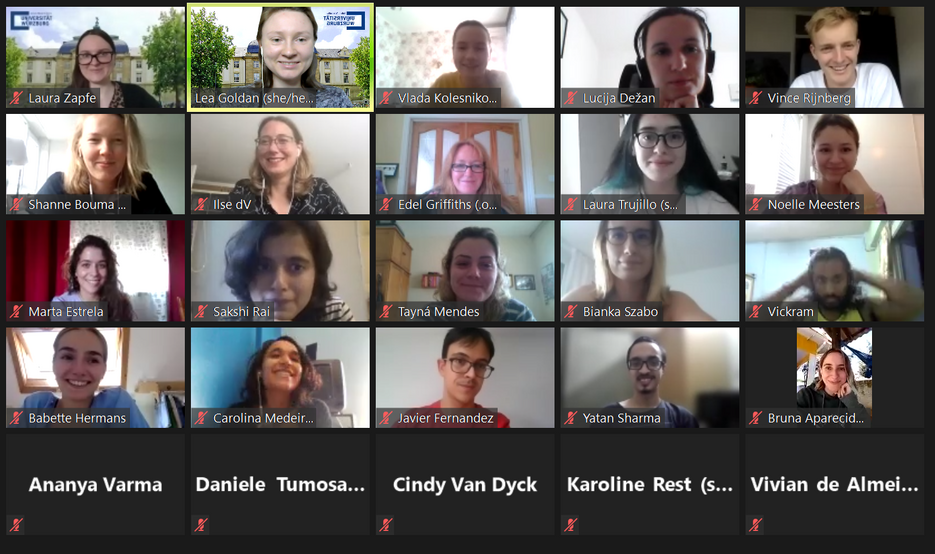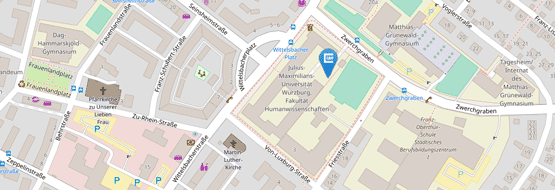34 participants from 18 countries explored mechanisms of social inequality in our Summer Module Course
08/24/2021In July 2021, our Institute organized a sociological Virtual Summer Module Course. More than 30 participants from all over the world joined us to explore mechanisms of social inequality.
The sociological international Summer Module Course on "Social Inequality" at the Institute of Political Science and Sociology took place from July 19th to July 23rd, 2021. The Module Course was organised and hosted by Lea Goldan and Laura Zapfe from the Chair of Quantitative Methods of Empirical Social Research. The Module Course ran digitally via the platforms Zoom and Padlet. A total of 34 participants came from 18 countries (Austria, Belgium, Brazil, Chile, Hungary, India, Ireland, Kazakhstan, Lithuania, Luxembourg, Malaysia, the Netherlands, Nigeria, the Philippines, Poland, Portugal, Slovenia, and Spain), which shows that the Summer Module Course is of international interest. The participants were bachelor, master, or PhD students as well as working in organisations or institutions related to social inequalities, resulting in a very heterogeneous group, which enriched the discussions with very diverse perspectives.
The Module Course gave a good overview of social inequalities over the life course in different fields and from different perspectives.
- Day 1: At the beginning of the Module Course, Professor Cornelia Kristen (University of Bamberg) gave a general introduction to the topic of social inequalities, covering definitions and theoretical foundations. The first workshop of the Module Course focused on sociological theories in more detail (Professor Andreas Göbel, University of Würzburg).
- Day 2: On Tuesday, the overarching theme was social inequality in education with a keynote on educational expansion and its relation to social inequalities (Professor Andreas Hadjar, University of Luxembourg) and workshops on children's educational opportunities and chances (Frederick de Moll, University of Luxembourg) and educational inequalities in tertiary education (Christina Haas, University of Luxembourg).
- Day 3: On Wednesday, the focus was on social inequalities in the context of the economy, with a special focus on care work with a keynote on the question of who takes on care work (childcare and household) by Professor Natascha Nisic (University of Mainz) and a workshop in which participants looked at the consequences of outsourced care work (Friederike Molitor, University of Mainz). The second workshop on Wednesday dealt with class and identity and the associated consequences of sociological description (Professor Elke Wagner, Martin Stempfhuber, PhD, University of Würzburg).
- Day 4: On Thursday, the thematic focus was on the connection between social inequalities and health, with a particular focus on older people. The keynote speech was about care work for older people and the well-being of those providing care (Professor Martina Brandt, Technical University Dortmund). The two workshops on the topic looked more closely at the connection of social inequalities with gender, family and health, and health and digitalisation (Alina Schmitz, Nekehia Quashie, PhD, Miriam Grates, Technical University Dortmund).
- Day 5: The final workshops on Friday were given by Lea Goldan and Laura Zapfe (University of Würzburg) and aimed to summarise the contents of the Module Course and to reflect on one's own understanding of and experiences with social inequality and to critically discuss problems caused by social inequality in order to develop and critically discuss political and social approaches to action and solutions.
There were also two social events: A virtual get-together, where the participants could get to know each other and discuss in a more informal setting, and a virtual city tour of Würzburg.
The feedback from the participants on the Summer Module Course was very positive: the programme was well prepared and comprehensible by the speakers and was designed appropriately for the level of the participants. The contents of the individual keynotes and workshops were related to each other and the participants had many opportunities to discuss and incorporate their own views and perspectives into the workshops.
We thank the Human Dynamics Centre of the Faculty of Human Sciences for the financial support of the course and all speakers for their contributions.



